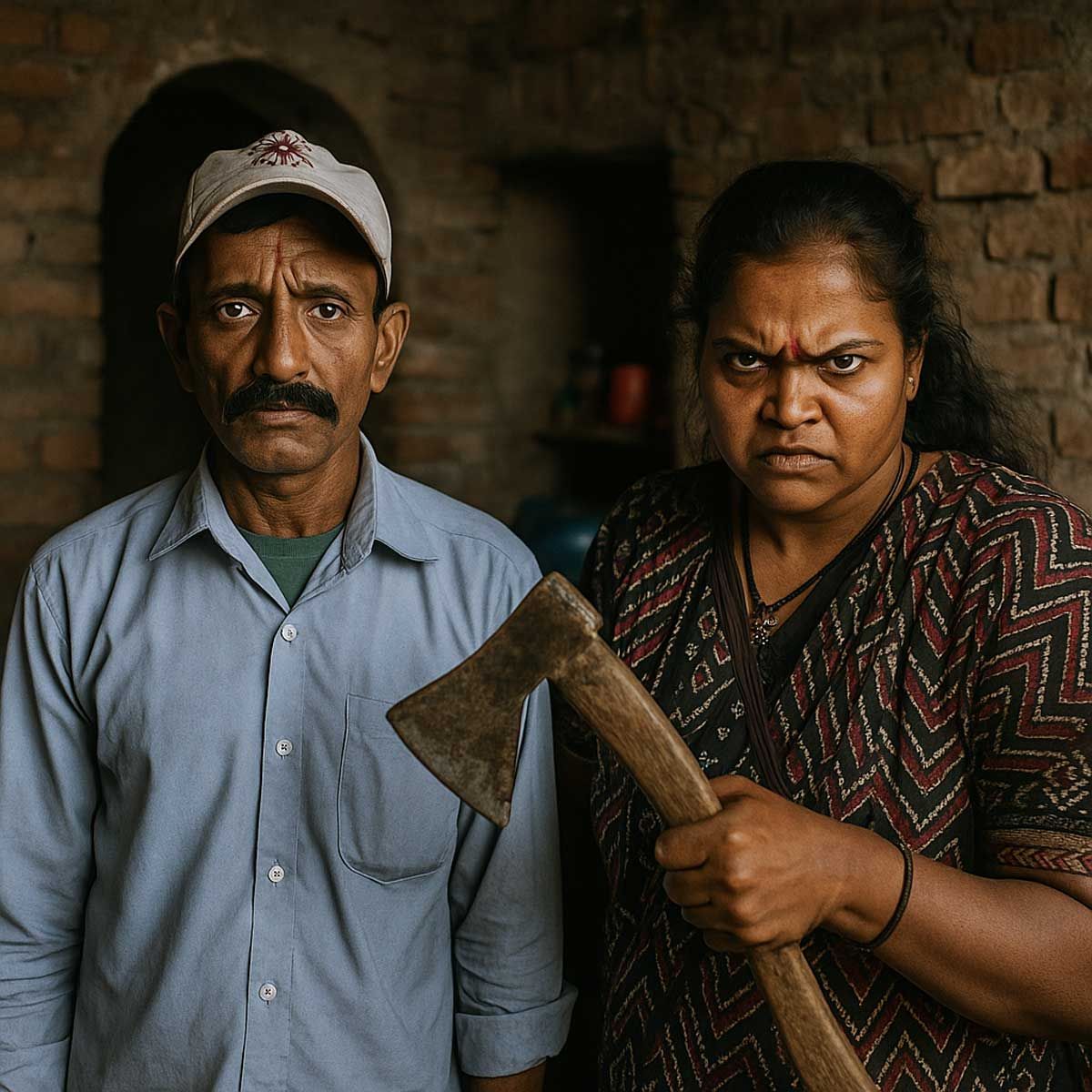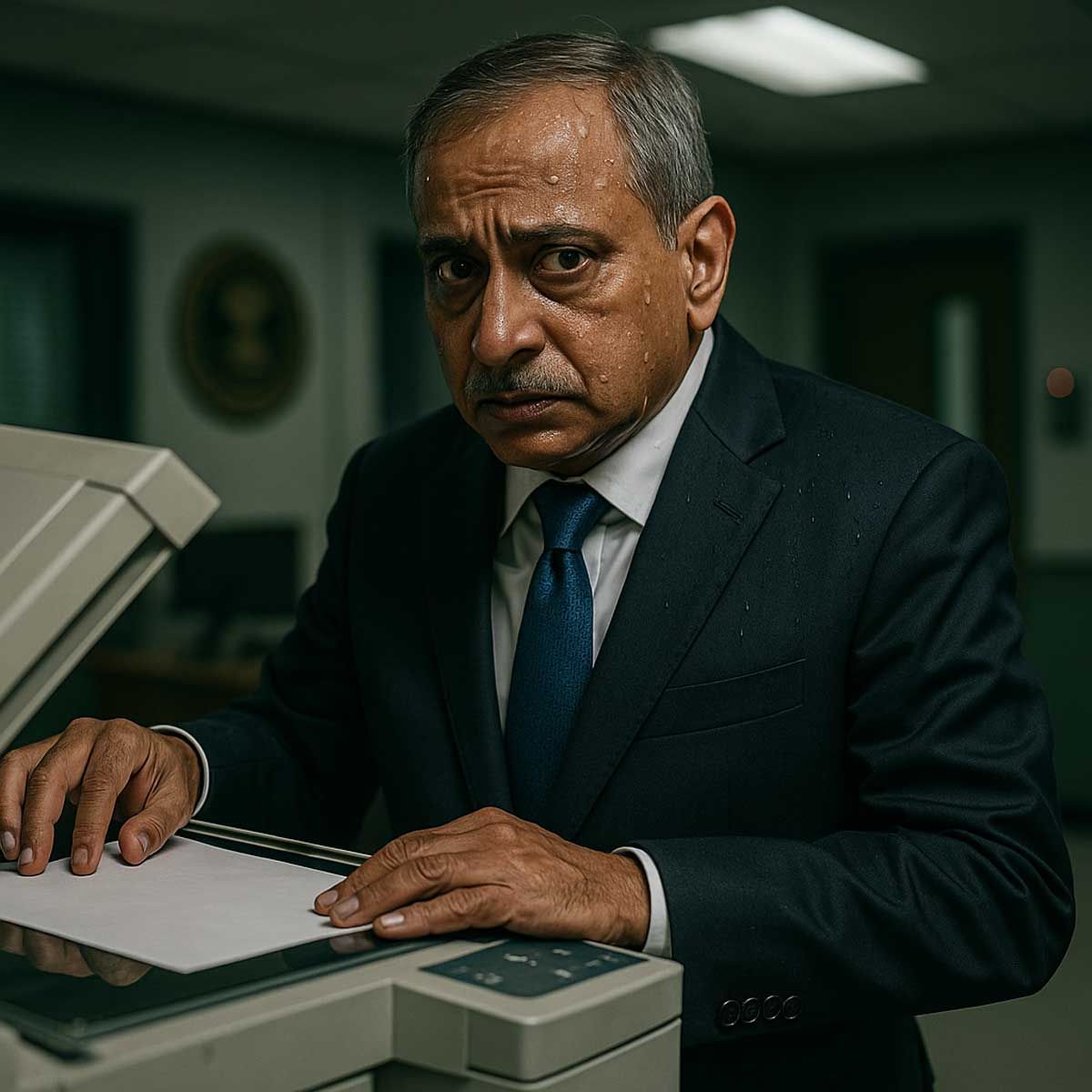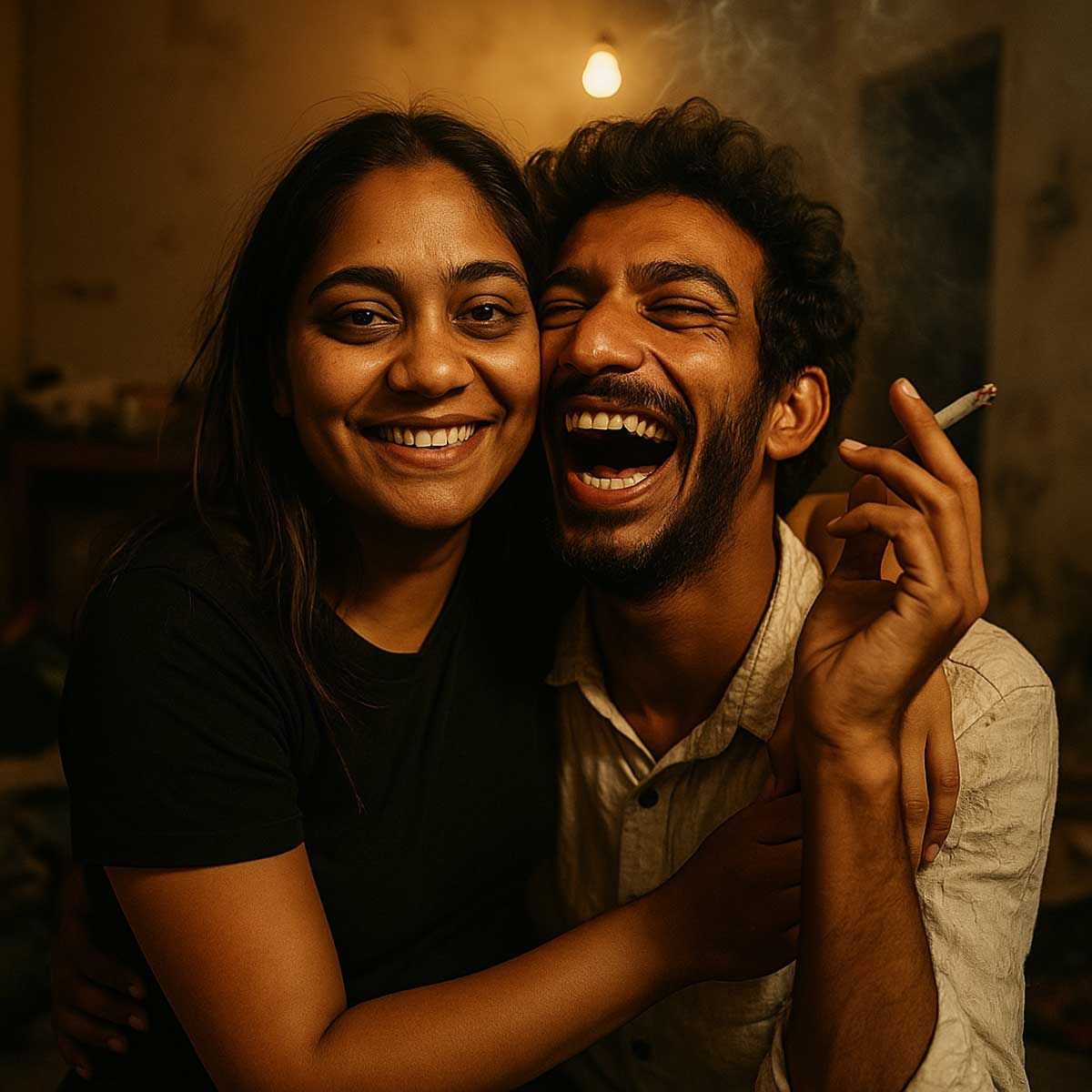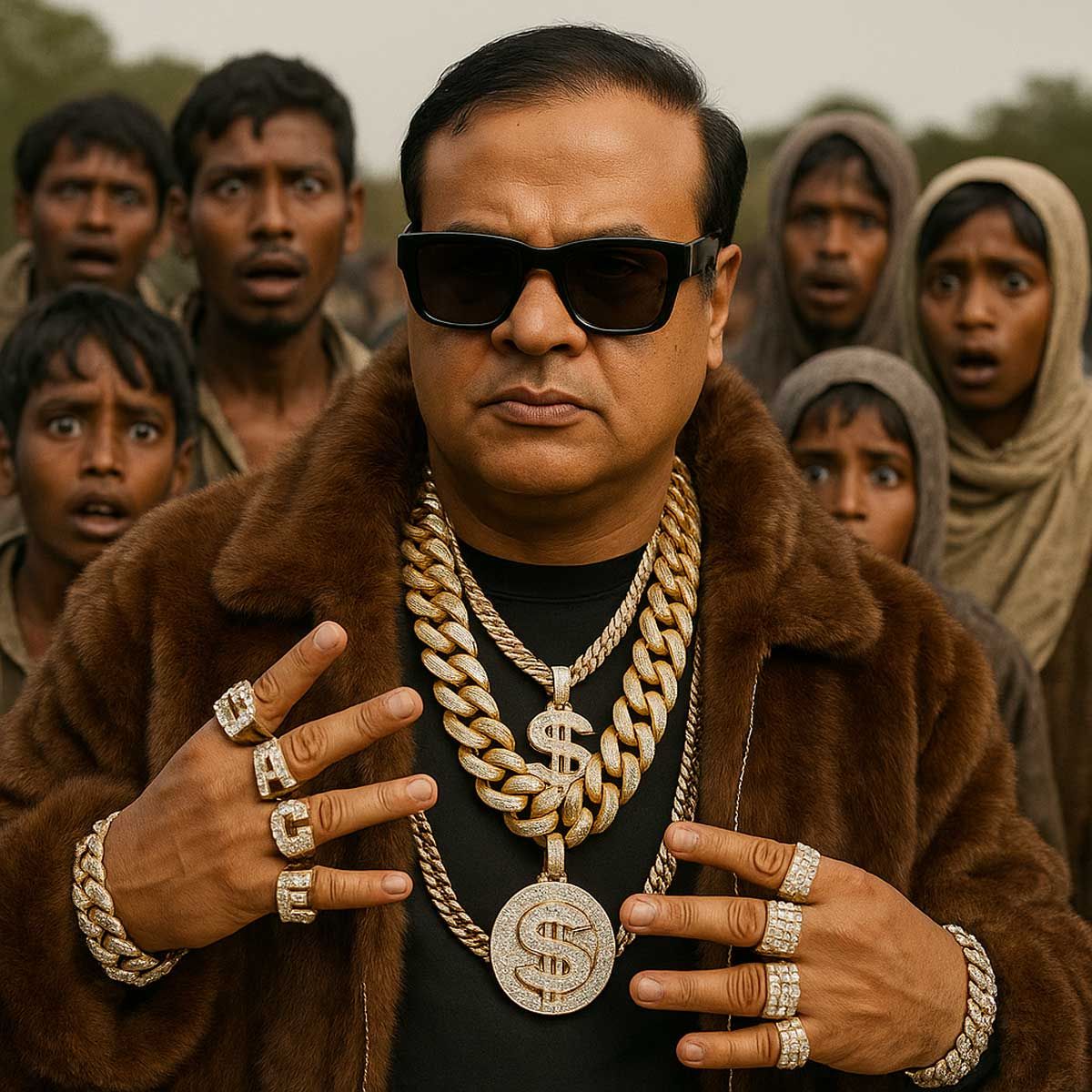More Coverage
Twitter Coverage
Satyaagrah
Written on
Satyaagrah
Written on
Satyaagrah
Written on
Satyaagrah
Written on
Satyaagrah
Written on
JOIN SATYAAGRAH SOCIAL MEDIA
"कहाँ से आते हैं ये लोग": Maratha activist Jarange Patil provocatively demands OBC quota reservations for Muslims, a separate religion not akin to Hindu castes like Marathas, sparking debates and suggesting a strategy to disrupt OBC unity in Maharashtra
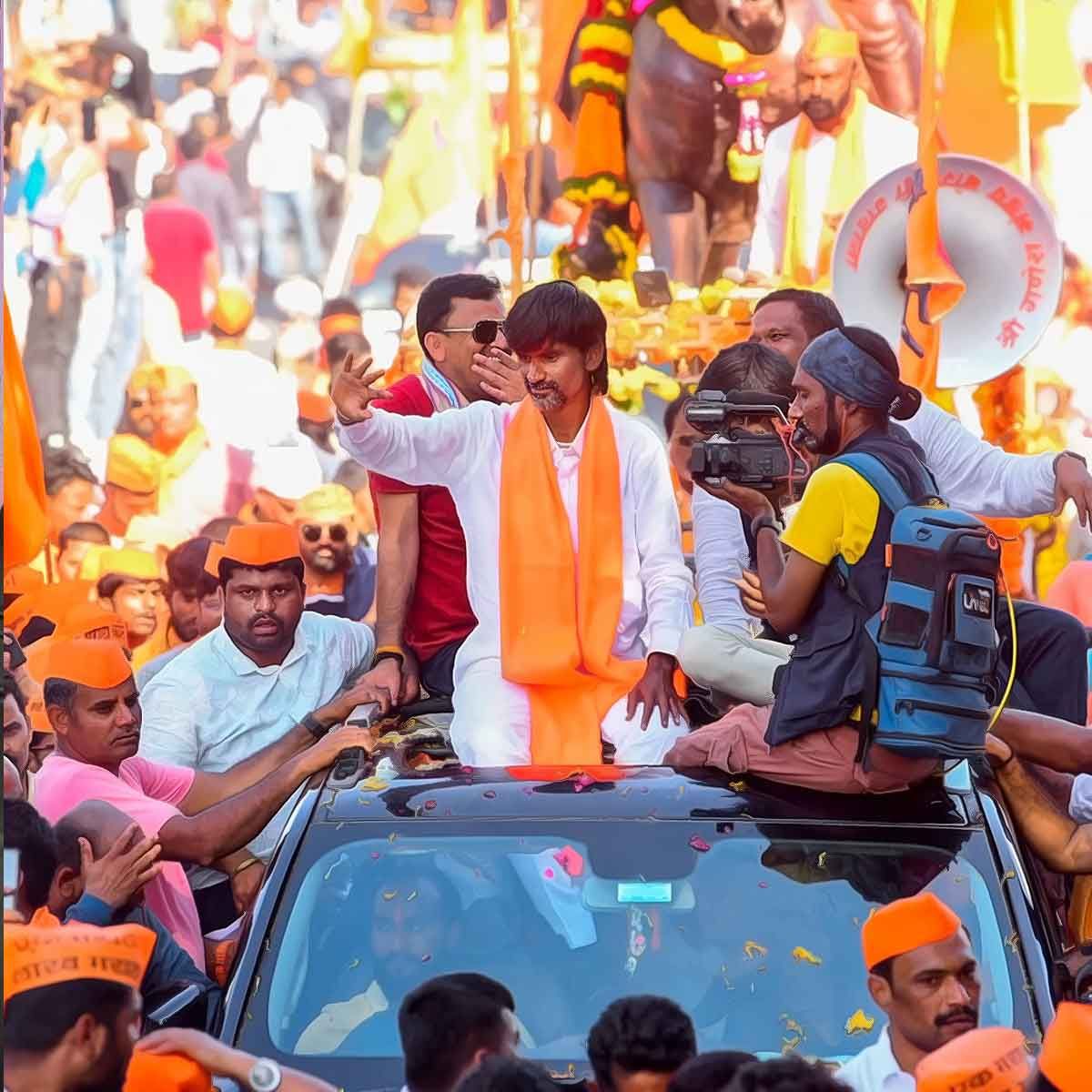
The issue of reservation for the Maratha community in Maharashtra continues with minimal resolution to date. The protests led by 'Maratha activist' Manoj Jarange Patil are persistent. Since October 2023, Patil has been striking, demanding reservations for Marathas from the backward quota. The protests have turned violent, damaging public property and vehicles in several districts such as Jalna, Pune, Beed, and Dharashiv. Additionally, demonstrators have set fire to the homes of several NCP politicians and chanted the slogan 'Ek Maratha, Lakh Maratha'.
|
Recently, in January of this year, the state government led by CM Eknath Shinde responded by accepting all demands presented by Jarange Patil, granting a 10% reservation to Marathas, which is above the existing 52% cap, and classifying them as a socially and educationally backward class (SEBC). Although Patil ended his strike following this decision, he began a new protest in June demanding the implementation of a draft notification that would recognize all blood relatives of Maratha community members as Kunbis, an agrarian group classified as another backward class (OBC) eligible for reservation. Patil was quoted as saying, "I will not give up until the Maratha reservation is granted."
Shinde assured a resolution to the ongoing problem and approved a 10% reservation for the Maratha community. Patil escalated his demands by requesting that a law be enacted to designate Kunbis as Marathas. He also issued a stark threat to field candidates for all 288 Assembly seats in Maharashtra in the next State election if his demands were not met.
Patil, previously known for advocating solely for the Maratha community, has now expanded his campaign to include the Muslim community, demanding reservations for them as well.
Muslims should get a reservation from OBC quota: Jarange Patil
On Monday (24th June), Jarange Patil caused further controversy by demanding that the Muslim community should receive reservations from the OBC quota. He specifically mentioned that Muslims with Kunbi caste certificates should be granted reservations in government jobs and educational opportunities under the Other Backward Class quota in Maharashtra.
He supported his demand by citing government records, stating, "There are government records that show that the Muslims are also part of Kunbi castes. When these records prove that they are also farmers and belong to the Kunbi community, then Muslims should also be given reservations from the OBC quota. Muslims should not be facing injustice," Patil asserted.
Following this, Patil referred to the case of Pasha Patel, a BJP leader whose records allegedly identify him as a Kunbi. Patil used this example to reinforce his argument, threatening, "If there are such records, then all Muslims should get a reservation from the OBC quota. I will see how they don’t get their rights," indicating his determination to pursue these claims.
The demand for Maratha reservations is long-standing, having persisted for over 32 years with various political parties and activists seeking a resolution. Patil’s interest in securing reservations for the Muslim community, which is recognized as a separate religion rather than a Hindu caste like the Marathas, is viewed by some as a strategy to provoke the OBCs. These communities are wary of losing their reservations amid increasing demands for extensive reservations for the Marathas.
|
OBC leaders oppose Jarange Patil’s demand for Muslim reservation, call it a separate religion
Following Jarange Patil's call for Muslim reservations, OBC activist Laxman Hake, who has long advocated for the OBC community, noted that while certain Muslim castes fall under the OBC category and receive reservations, the larger Muslim community is predominantly viewed through their religious identity. "Hinduism is divided into social hierarchies, but the Muslim community is seen as a religion," he stated.
BJP leader Nitesh Rane also voiced opposition to Patil's proposal, citing constitutional constraints. "Our Constitution does not allow giving reservations on religious grounds. Jarange Patil may not be aware that the reservation can be granted only on the backwardness of a caste," he explained.
OBC leader Chagan Bhujpal (NCP-Ajit Pawar) criticized Jarange Patil for his demands, highlighting that Muslims have already been receiving benefits under the OBC quota for 25 years. "Many castes among Muslims have been getting reservations under the OBC quota," Bhujbal remarked, suggesting that Patil's understanding might be lacking. Despite the criticism, he asserted his resilience, stating that he was not intimidated by these challenges.
Additionally, Radhakrishna Vikhe Patil, the revenue minister and a BJP Maratha leader, commented on the direction of the Maratha quota protest. "Jarange Patil is not the only representative of Marathas. The government has already given a separate reservation of 10% to Marathas. The government has also started deliberations on reservations for Marathas and OBCs," indicating ongoing governmental efforts to address reservation issues comprehensively.
The state has previously enacted a 10% reservation for the Maratha community, in addition to the existing 52% quota that includes reservations for the Economically Weaker Section (EWS). With Jarange Patil now advocating for Muslim reservations, it raises concerns about integrating these demands into the already stretched quota system, especially without clear guidelines on separate reservation policies for different communities.
|
Muslim reservation- a contentious issue; Bombay HC knocking down a portion
The topic of reservations for Muslims emerged before 2014 during the tenure of the Congress-NCP government in Maharashtra. At that time, the government announced a 5% reservation for the Muslim population in government jobs and educational sectors.
However, the Bombay High Court later invalidated parts of this reservation policy. Specifically, it removed the reservation benefits in government positions while maintaining those in educational sectors. Following this court decision, the Devendra Fadnavis-led BJP government, which assumed power in 2014, confirmed their opposition to reservations based on religion, aligning with the court's judgment.
Muslim leaders, Samajwadi Party, NCP (Sharad Pawar) making demands for 5% Muslim reservations
Subsequent to the approval of reservations for the Maratha community, other groups began to vocalize similar demands. Notably, after the state government's action, Muslim leaders, including Samajwadi Party MLA Rais Shaikh, pushed for a 5% reservation for Muslims. On February 20th, Shaikh reached out to Chief Minister Eknath Shinde with a formal request for the implementation of this reservation. He argued that this measure was essential to alleviate the community's backwardness and integrate them into mainstream societal development.
Shaikh also referenced past commitments, noting that the previous NCP-Congress government had sanctioned a 5% quota for Muslims, which, however, was never implemented. He expressed the community’s frustration, stating, "It is a gross injustice to the Muslim community, which has been fighting for their rightful reservation for decades. There is a lot of resentment among the community for not getting our due. It is high time that the government must provide reservation to the community," as articulated in his letter to the CM.
"Around 50 sub-castes in the community will benefit from the reservation. The demand for reservation is based on the economic and social backwardness of the community. We hope that the government will give the rightful reservation to us," he had added. This statement reflects the widespread impact that the reservation could have within the Muslim community, focusing on those who face socio-economic challenges.
Shaikh additionally clarified that Marathas should have separate reservations and emphasized that the OBC quota should remain unaffected. Despite this, he overlooked the fact that the Muslim community has been benefitting from the OBC reservation system for 25 years, with those eligible Muslims continuing to receive government reservation benefits.
Saleem Sarang, vice-president of the NCP, threatened action on June 9th if the state government did not comply with demands for a 5% reservation for Muslims in educational institutions, as previously allowed by the Bombay High Court. "The BJP has no qualms in joining hands with Chandrababu Naidu of TDP whose pro-Muslim reservation stand is well-known. So, why should the BJP oppose it if the Mahayuti government gives Muslim quota?" Sarang questioned, highlighting a perceived inconsistency in the BJP's stance on reservations.
Arif Naseem Khan, a former state minister, joined the call for Muslim reservations. He pointed out that the BJP’s alliance with the TDP at the center supports Muslim reservations. "N Chandrababu Naidu’s son and TDP’s general secretary, N Lokesh, has announced that the TDP government will continue with the 4% Muslim reservation. In Maharashtra, our government had given a 5% quota to Muslims on the basis of educational and economic backwardness. The government must restore this reservation along with the quota for Maratha and Dhangar communities," Khan stated.
Earlier in December 2023, an NCP (Sharad Pawar) MLA from Baramati constituency raised the issue of reservations for Muslims alongside Marathas, Dhangars, and Lingayats in Maharashtra. While discussing Maratha reservations, he pointed out the need for a comprehensive solution to address the reservation demands for various communities, including Muslims. However, he seemed to overlook the fact that Islam is a separate religion, whereas Maratha, Dhangar, and Lingayat are castes, highlighting a crucial distinction in the context of constitutionally permissible reservations based on religion versus caste.
|
What the Indian Constitution says about religion-based reservations
The Indian Constitution advocates for equity, aiming to ensure justice which may require differential treatment or special measures for particular groups to achieve this goal.
It notably removed the term ‘minorities’ from what was originally Article 296, now reflected in Article 335, but it introduced Article 16(4). This provision permits the state to make “any provision for …reservation…in favor of any backward class of citizens which…is not adequately represented in the services under the state.”
Additionally, Article 15(4), established by the first constitutional amendment, empowers the state to make “any special provision for the advancement of any socially and educationally backward classes of citizens or for the Scheduled Castes and the Scheduled Tribes”.
Article 15 explicitly prohibits discrimination by the state against any citizen on grounds solely based on religion, caste, gender, race, and place of birth. Following the Supreme Court's judgment in the State of Kerala vs N M Thomas (1975), reservations are interpreted as a means to extend equality, acting not as an exception but rather as an integral part of the equality and non-discrimination mandates set forth in Articles 15(1) and 16(1).
The critical element in Articles 15 and 16 is the word ‘only’, suggesting that if a group, whether based on religion, race, or caste, is identified as a “weaker section” under Article 46 or as a backward class, it qualifies for special provisions aimed at their advancement.
In practice, some Muslim castes are eligible for reservations not because they are Muslims per se but because they have been recognized as backward. In many states, this reservation is facilitated without impacting the quotas established for SCs, STs, and OBCs by creating a sub-quota within the OBCs. Currently, there are 14 states and union territories in India where Muslim communities are included in the reservation list, recognized based on their social and economic backwardness.
|
Probable reasons why Jarange Patil is allegedly becoming the voice of Muslims
It appears quite surprising that Jarange Patil, known primarily for advocating for the Maratha community, has shifted his focus towards addressing what he describes as the 'so-called' injustice facing the Muslim community. Notably, the Maratha reservation protests gained significant prominence and turned massively violent during the periods when the BJP was in power, specifically in the years 2014 and again in 2023-24.
Additionally, the results of the recent Lok Sabha elections in Maharashtra show a trend where Muslims predominantly supported parties other than the BJP. This shift in support contributed to the BJP's inability to secure a majority in the 2024 elections. Election outcomes revealed that the Shiv Sena under Chief Minister Eknath Shinde secured 7 seats, the BJP won 9 seats, while parties that received backing from Muslim and Communist groups, such as the NCP (Sharad Pawar), Indian National Congress, and Shiv Sena (UBT), won 8, 13, and 9 seats, respectively. This outcome indicates a clear preference among Maharashtra’s Muslim voters for parties opposing the BJP.
Considering Jarange Patil's past affiliation with the Congress and his newly expressed sympathies for the Muslim community, it seems plausible to suggest that Patil's recent actions might be aimed at boosting mass appeal for parties like the NCP (Sharad Pawar), Shiv Sena (UBT), and Indian National Congress in anticipation of the upcoming State Assembly Elections. His involvement is viewed by some as a strategic move to garner support under the banner of fighting for Maratha reservations.
If not, what exactly prompted Jarange Patil to initiate new protests in June concerning the 'Maratha reservation' after the state had already sanctioned a 10% increase on top of the existing 52% in February of the same year? What drove him to suddenly advocate for Muslim reservations, especially when this community has been included in the OBC quota for years? Why did he begin to consider Muslim reservations initially, despite having no direct connection with the community?
As expressed by several leaders, it appears that Jarange Patil might have lost his focus in the ongoing struggle for the Maratha quota within the state. Furthermore, he has escalated his actions by threatening the government with statements about observing how the state might fail to provide reservations to the Muslim community. Such developments are concerning and suggest that immediate attention from the central government might be necessary.
 Support Us
Support Us
Satyagraha was born from the heart of our land, with an undying aim to unveil the true essence of Bharat. It seeks to illuminate the hidden tales of our valiant freedom fighters and the rich chronicles that haven't yet sung their complete melody in the mainstream.
While platforms like NDTV and 'The Wire' effortlessly garner funds under the banner of safeguarding democracy, we at Satyagraha walk a different path. Our strength and resonance come from you. In this journey to weave a stronger Bharat, every little contribution amplifies our voice. Let's come together, contribute as you can, and champion the true spirit of our nation.
 |  |  |
| ICICI Bank of Satyaagrah | Razorpay Bank of Satyaagrah | PayPal Bank of Satyaagrah - For International Payments |
If all above doesn't work, then try the LINK below:
Please share the article on other platforms
DISCLAIMER: The author is solely responsible for the views expressed in this article. The author carries the responsibility for citing and/or licensing of images utilized within the text. The website also frequently uses non-commercial images for representational purposes only in line with the article. We are not responsible for the authenticity of such images. If some images have a copyright issue, we request the person/entity to contact us at This email address is being protected from spambots. You need JavaScript enabled to view it. and we will take the necessary actions to resolve the issue.
Related Articles
- Raj Thackeray roared today at the ‘Uttarsabha rally ‘ while rebutting counter-allegations against him made by Maha-Vikas-Aghadi leaders: He spoke fiercely demanding UCC, unequivocally supported Hindutva, and lashed out at MVA leaders
- NCP leader Baba Siddique shot dead in Mumbai ahead of the Maharashtra elections, two suspects detained; he was known for his Iftar parties that reconciled Salman and Shah Rukh Khan, and his son Zeeshan won Bandra East before being expelled from Congress
- "If Uttar Pradesh can remove the loudspeakers, so can Maharashtra. Loudspeaker is a social issue, not a religious one": Raj Thackeray addresses mega rally, reiterates May 3 deadline to remove loudspeakers from mosques
- 'Balasaheb has taught us – The one who challenges should be broken. Even Modi would not have been spared if he had challenged Matoshree the way Kirit Somaiya did': Shiv Sena leader Dipali Sayyed
- "Often, in real world, it's not the smart that get ahead but the bold": Uddhav Thackeray suffered yet another blow in the fight for Shiv Sena’s legacy when his estranged brother Jaidev endorsed Eknath Shinde at Dussehra rally, Smita Thackeray also joined
- Plea of MP Navneet Rana and husband MLA Ravi Rana to quash FIR for the gruesome and heinous crime of reciting Hanuman Chalisa outside Matoshree dismissed by Bombay HC: Justices stated that it was devoid of merit
- "Game Of Thrones": Shiv Sena leader Eknath Shinde says, 'We will carry Balasaheb Thackeray's Hindutva", rebel leader reached Northeastern State of Assam, reportedly with 34 party MLAs and 6 independent MLAs
- Solapur Police Commissioner and personnel serving food to Muslim community at an Iftar Party, Mumbai CP had earlier attended Iftar hosted by Azad Maidan riots accused Raza Academy: Maharashtra
- Prima facie evidence found that Nawab Malik conspired with D company members Hasina Parkar, Salim Patel, and Sardar Khan to grab property, directly and deliberately involved in money laundering’: Says Mumbai court
- "Jara halke gadi hanko mere Ram gadi wale": Supreme Court refused to stay floor test, Chief Minister Uddhav Thackeray addressed the public through a live video on Facebook, announced his resignation as CM and also as an MLC
- Violence Against Minority Hindus in Bangladesh: The Mistier World Of Silence
- Mirwaiz Farooq's surprising release by BJP Govt sparks intense speculation and shifts in Kashmiri politics, as he navigates his renewed freedom, the cleric-politician's leadership will be tested amid evolving political scenarios and forthcoming elections
- Upset activist breaks into ‘Naagin dance’ on TV news: Roshni Ali lamenting about firecrackers and oxygen
- Jawaharlal Nehru: History has been kinder to him because he rewrote it
- Truth of Rahul Gandhi at Cambridge University event to speak at “India at 75": Organised by Congress affiliate organisation “Bridge India”, partner outfit stuffed with Congress leaders, Oxfam and Amnesty connections















